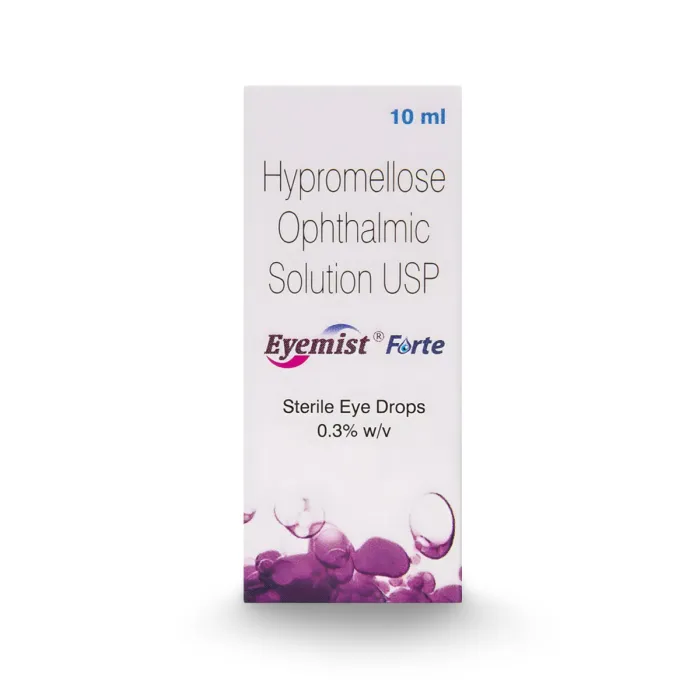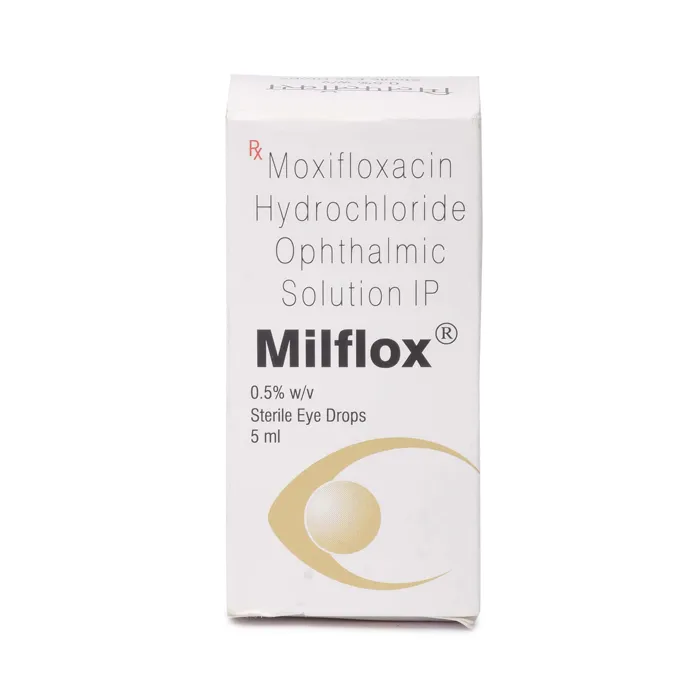Many people battle watery eyes frequently, which may occur for various reasons.
Though tears are essential for good eye health, excessive tearing and watering can cause distress.
In most cases, this problem resolves on its own. However, sometimes, it may indicate a more serious and chronic health issue.
For this reason, it is crucial to determine the cause of watery eyes and treat it accordingly.
This article will explore various watery eyes causes and how to tackle this problem.
Watery Eyes Causes
Though tears are essential for good eye health, excessive tearing can ruin your mood as you are unable to focus.
Identifying and managing the cause of watery eyes can give relief from watery eyes and help protect eyesight.
Several eye conditions, including dry eyes, allergies, eye infections, and Keratitis, can cause watery eyes.
Let us explore these causes of watery eyes in detail.
Save up to 90% on your medicine bills

Eyemist Forte 10 ml

Milflox 0.5% 5 ml

Restasis 0.05% Ophthalmic Emulsion

Pred Forte 10 ml
Eye Infections
Common eye infections like pink eye (Conjunctivitis) can result in watering eyes. Other symptoms that may result from the infection include redness, discomfort, and light sensitivity.
These infections often result from a virus or bacteria. Medical professionals usually recommend antiviral or antibiotic eyedrops to treat eye infections.
If you wish to explore more about eye infection symptoms, read Eye Infection Symptoms You Need to Look Out For.
Allergies
An allergy can occur when an allergen like dust or pollen comes into contact with the eyes.
This triggers a release of histamine, which causes the tiny blood vessels in the eye to leak as a defense mechanism.
An allergy can cause various symptoms, including eye pain, itching, redness, and watering.
Dry Eyes
Dry eye, medically known as Keratoconjunctivitis Sicca, is an eye condition in which there is low production of tears, or they dry up too quickly.
Though it may seem quite the opposite or almost impossible, but dry eyes can cause watering eyes.
Dry eyes are often a cause of eye pain and irritation, which can result in excessive tearing.
Eyelid Problems
Eyelid problems like Ectropian (eyelid turned outwards) or Entropian (eyelid turned inwards) can cause problems like watery eyes.
These eyelid problems can affect tear distribution and drainage in the eye, leading to watery eyes.
Keratitis
Keratitis is defined as the inflammation of the cornea, the transparent top layer of the eye, which can be triggered by infections, injury, or wearing contact lenses for an extended period.
A common symptom of Keratitis is excessive tearing or watery eyes.
Do you want to learn more about the symptoms of Keratitis? Read Keratitis Symptoms: Recognizing the Signs of Corneal Inflammation.
When to Seek Medical Help
 Source: tirc83_from_Getty_Images
Source: tirc83_from_Getty_ImagesWatery eyes are a common problem that people deal with frequently in their daily lives.
Watery eyes generally clear up on their own and do not require medical treatment. However, a person should seek medical help if the problem persists or worsens.
Generally, identifying the cause of watery eyes and managing it with medications, artificial tear drops, and lifestyle changes can help.
Antibiotic eyedrops may be more effective if the cause of watery eyes is a bacterial infection.
Consult an eye care specialist if you have watery eyes or other eye issues.
Final Words
Watery eyes can be troublesome as they make it difficult to focus and affect your daily life. It is a common problem that may occur for various reasons.
Eye conditions that can cause watery eyes include Keratitis, eye infections, allergies, and dry eyes.
Identifying what causes watery eyes can help manage the condition effectively and get rid of watery eyes as soon as possible. However, in most cases, watery eyes clear up on their own.
Using artificial tear drops, medications, and lifestyle changes can help treat the underlying cause of watery eyes.
Consult a medical professional if watery eyes do not improve or worsen over time.

Frequently Asked Questions
Can I treat watery eyes at home?
Yes, mild cases of watery eyes can often be managed at home with warm compresses and over-the-counter artificial tears. u003cbru003eu003cbru003eHowever, if symptoms persist or worsen, it’s advisable to seek professional medical advice.
Are watery eyes always a sign of an underlying problem?
No, not always, but persistent or recurrent watery eyes can be a symptom of an underlying issue, such as dry eyes or allergies. u003cbru003eu003cbru003eConsult a healthcare professional for a proper diagnosis.
When is surgery needed for watery eyes?
Surgery is typically considered for severe cases of watery eyes caused by issues like blocked tear ducts or eyelid problems when other treatments have been ineffective. u003cbru003eu003cbru003eYour eye doctor will evaluate your specific situation and recommend the appropriate course of action.
Can Stress or emotional factors cause watery eyes?
Yes, Stress and emotional factors can sometimes contribute to watery eyes, especially when accompanied by tension or Anxiety. u003cbru003eu003cbru003eHowever, they are usually not the primary cause, and addressing the underlying factors is crucial.
Can I wear contact lenses if I have watery eyes?
No, wearing contact lenses with watery eyes can be challenging, as excessive tearing can disrupt lens placement and comfort. u003cbru003eu003cbru003eConsult your eye care professional for guidance on lens options and proper care.
Cheap Medicine Shop only refers to credible, authoritative sources for our content. If you’re curious about how we ensure the integrity of our content, we encourage you to read our Content Information Policy.














